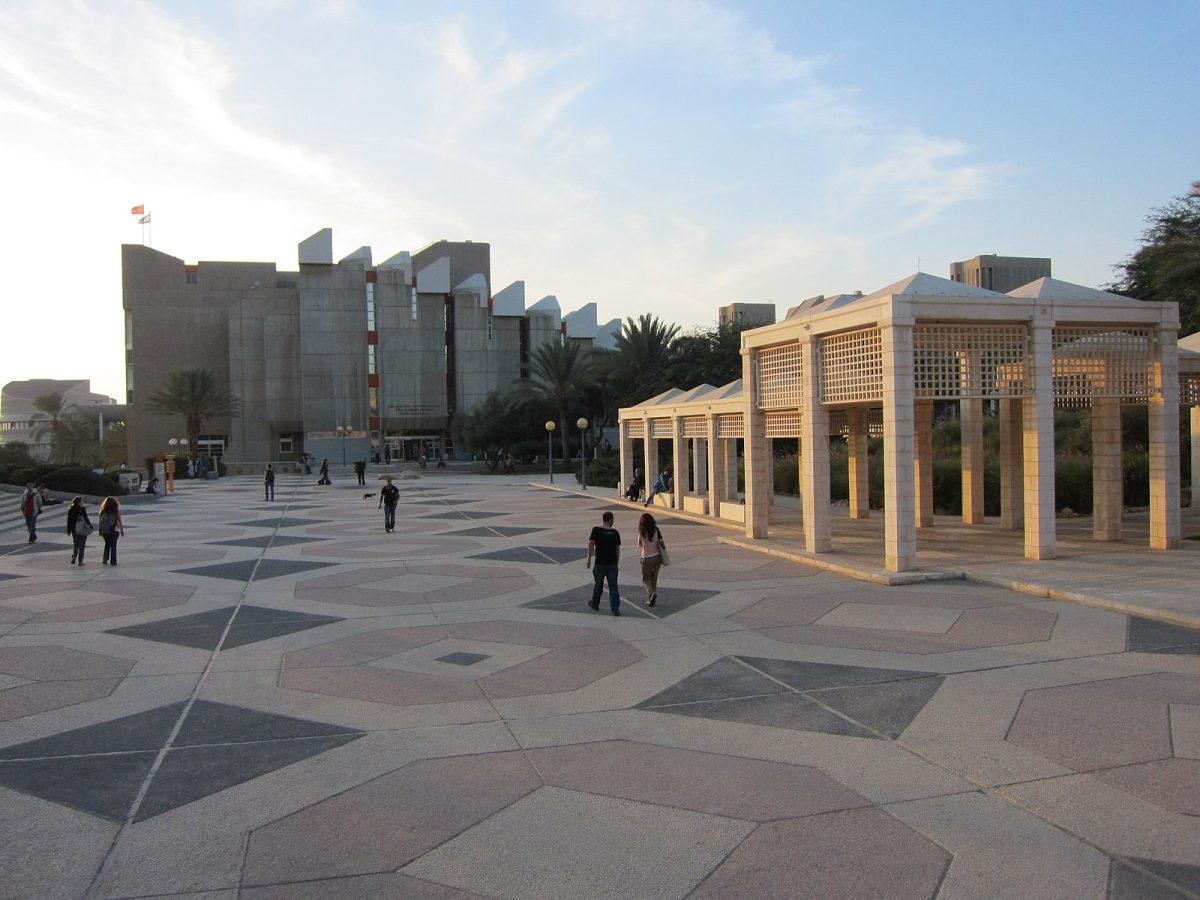(Photo from David Saranga & IsraelMFA)
In late September, NJIT and Ben-Gurion University of the Negev officially held the opening ceremony for the Institute of Future Technologies, a research center collaboration between the two universities. The official space is located in NJIT’s Jersey City campus, but interactions between faculty members span two continents. The move, however, was not without its critics.
“This project was started by [former NJIT] President [Joel] Bloom and Dean [Craig] Gotsman of the Ying Wu College of Computing, and really began when President Bloom visited Israel and the university,” stated Dean of the Newark College of Engineering Moshe Kam. Every time an NJIT administrator visits another university, he explained, they are often looking out for collaboration opportunities. Sometimes, the fit is not quite right, but the meeting with Ben-Gurion University came at an ideal time.
The technological output of Ben-Gurion University was of particular note. “Given that Israel is a start-up nation and that the cybersecurity research in Israel is so advanced, we targeted [the university],” commented Computer Science Professor Baruch Schieber. Similarly, NJIT’s Cybersecurity Research Center was named a National Center of Academic Excellence by the National Security Agency in 2021.
Other points of similarity included civil and environmental engineering. “Because there is so much interest in environmental engineering, and because both here and at Ben-Gurion University, there is so much work being done in water, the collaboration was enhanced and [the Newark College of Engineering] came into the picture,” added Kam. Future additions to the program plan include other concentrations in engineering.
The Institute for Future Technologies focuses on collaborations between professors, with students becoming involved if they work with those faculty members. Upcoming plans are to confer joint master’s and Ph.D. degrees, with students studying and working at both universities over the progression of their studies. The current primary function, however, is to award research grants to a collaborative project between researchers from the two universities.
“We already saw a collaboration win a substantial research award, and this is validating what we set out to do,” said Kam. “The seed grants have only been around for a year and a half, and the fact that we already have a signed contract means we’re heading in the right direction.”
Schieber is interested in encouraging undergraduates to spend a semester abroad at the university. “I think it’s very important to expose people on both ends to other cultures in a different environment,” he commented. “Ben-Gurion University is a very immersive campus and has students from all over the world.”
“We are already doing exchanges, with students going abroad,” continued Kam. “Ben-Gurion has now become a more attractive destination because students may have a relationship with faculty or laboratories there.”
The partnership between NJIT and Ben-Gurion University has garnered statewide attention. New Jersey Governor Phil Murphy was present, along with President of Ben-Gurion Daniel Chamowitz and former NJIT President Bloom for the ribbon-cutting ceremony this past fall.
“Governor Murphy visited three countries outside [the United States] during his tenure,” Schieber noted. “These included Germany, where he had been an ambassador, India, and Israel. This is because the latter two are tech forces, and the state would like to build connections with both nations and develop synergy on the technological front.”
However, NJIT’s association with an Israeli university has drawn some controversy. “When I learned of NJIT’s move to partner with [Ben-Gurion University], I was frankly very disappointed,” commented third-year chemical engineering major Ahmad Jamhour, who created the Instagram account @divestnjit in protest of the decision. As of Nov. 9, the account has over 200 followers and its first post, a statement against the partnership, has garnered over 700 likes.
“Ben-Gurion University has ties with the Israeli government, being that it provides cybersecurity resources to the [Israel Defense Forces], which spy on Palestinians,” Jamhour added. “The diversity at NJIT is insane, and on those grounds, NJIT should be a moral and ethical compass that shows other universities how to operate. This partnership draws a lot of red flags.”
“Although the agreement may be beneficial for NJIT, Ben-Gurion University, and Israel,” he said, “it is only making oppression against Palestinians worse. My goal is to have NJIT be more morally conscious of their decisions and divest from any government that oppresses people, Palestinian or otherwise.”
On the Instagram account, he added, “Social media has been a key tool, and I intend to post more about the situation. My ultimate goal is to bring this up to the President and the Dean of Students to make them aware of the situation.”
Kam responded, “As a college, we are obligated to follow certain state and national guidelines on which countries to exchange knowledge with. Israel is not in any list which requires any special precautions. This is the formal viewpoint.”
He added, “In addition, the Newark College of Engineering is embedded in professional associations such as the Institute of Electrical and Electronics Engineers, the American Society of Civil Engineers, and the American Society of Mechanical Engineers. None of our professional associations have recommended against ties with Israel.”
“There may be faculty members who personally object; I respect that. This is a completely voluntary activity, and the volume of it is very small compared to the overall college. In addition, such collaborations are completely kept away from weaponry, crowd control, or anything which may cause controversy,” Kam stated.
Kam added that individuals are welcome to speak with him or student organizations to share their opinions.
































